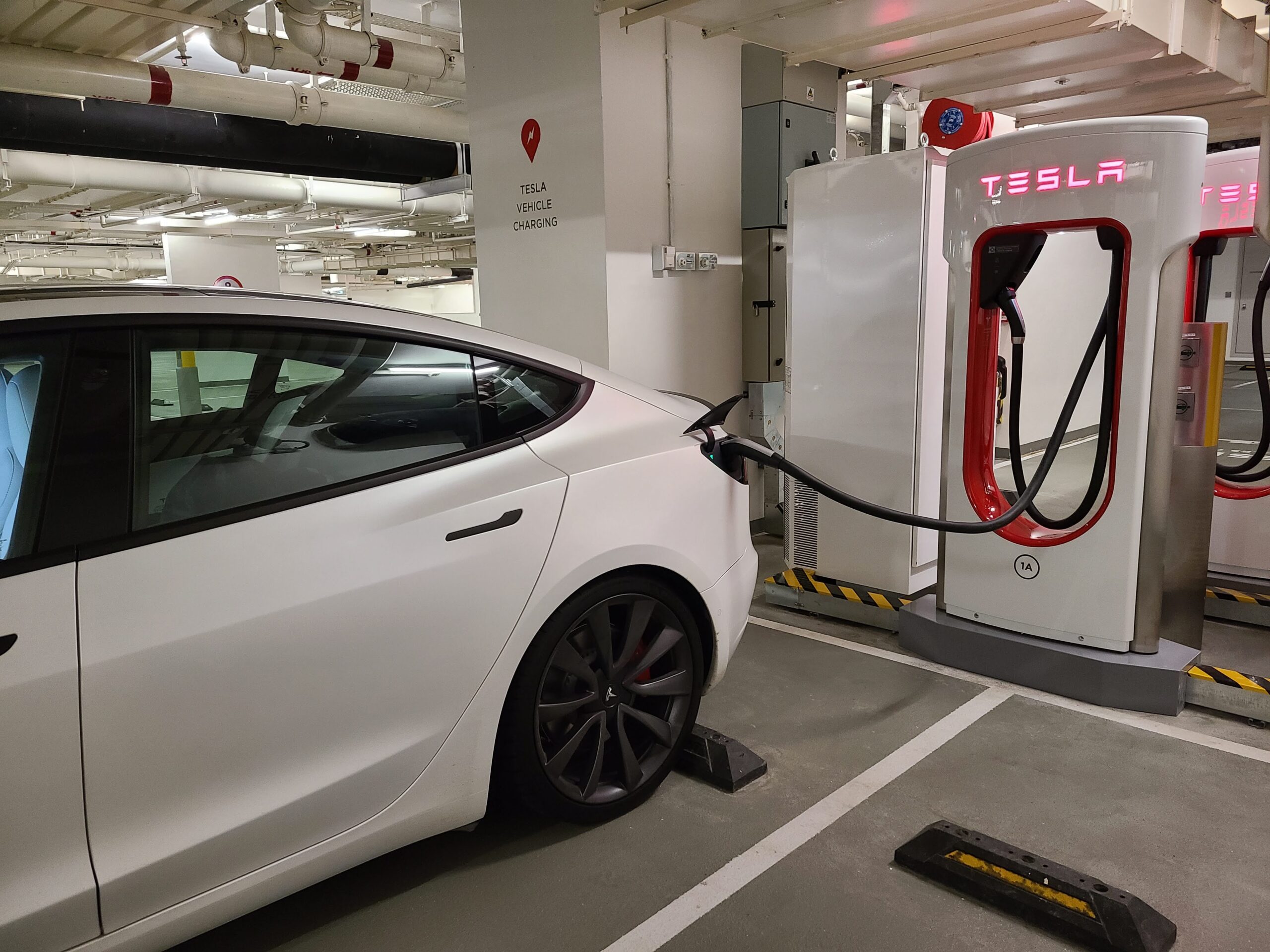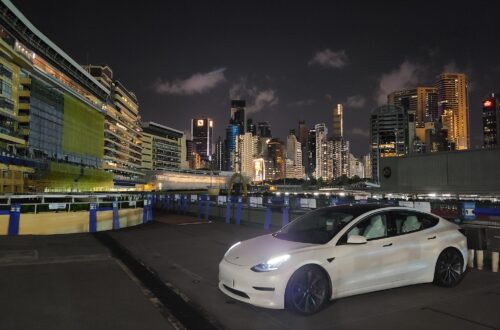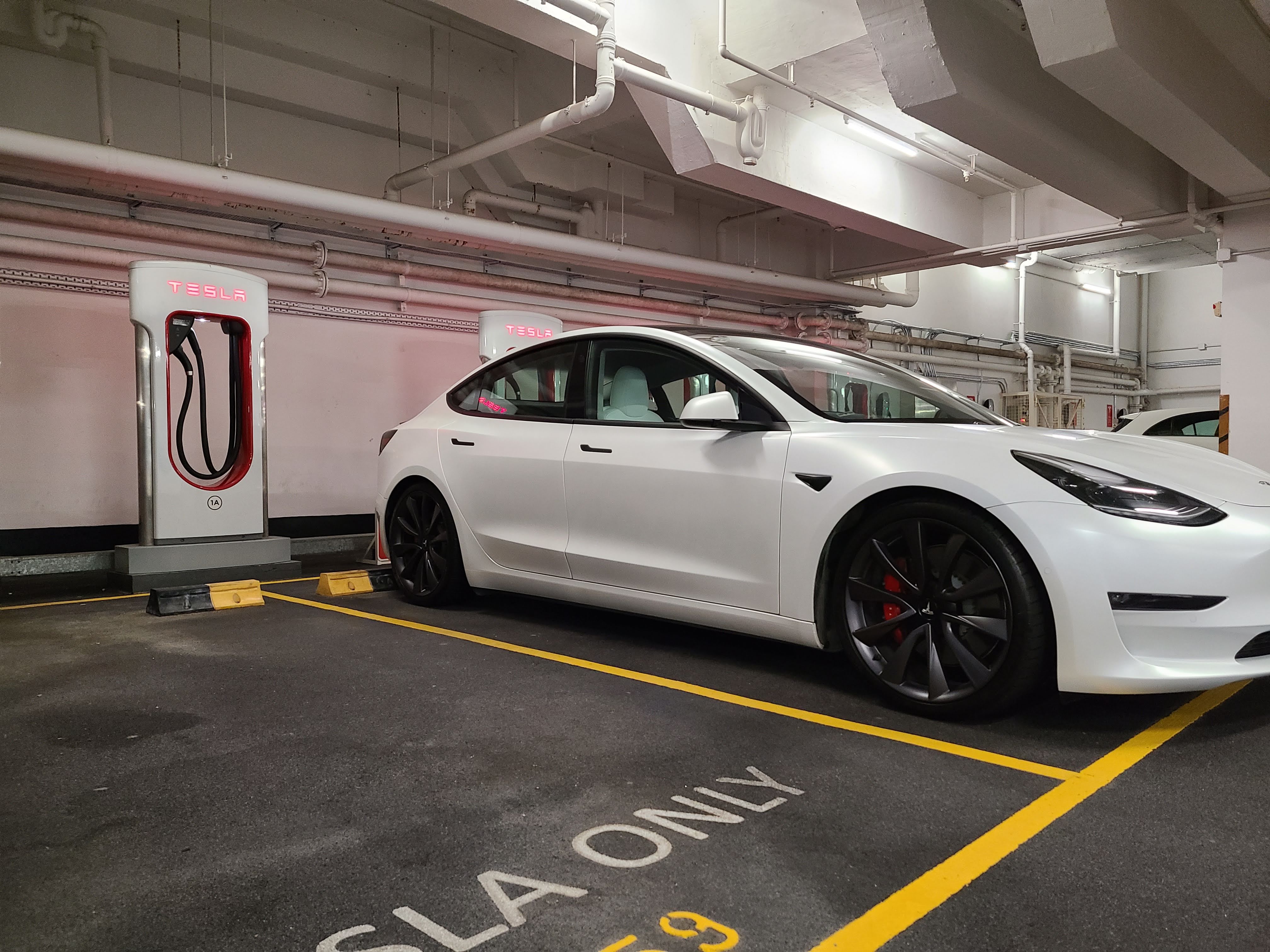
I have to admit that before driving an Electric Vehicle, I have forgotten all my grade school physics. Driving an electric vehicle has allowed me to refresh my basic knowledge about electricity.
It is a must to understand these basic concepts when you drive an electric vehicle. It will let you understand the car better and how charging works in your car.
Battery Capacity

My Tesla Model 3 Performance have a Direct Current “DC” battery pack that has a capacity of 75kWh. kWh is the short form of kilo-Watt-hour. The capacity of a battery is always measured in kWh.
Charging Speed
The Tesla Model 3 supports both “AC” Alternate Current and “DC” Direct Current Charging. For AC Charging, the car have an “AC” convertor which converts “AC” current to your car’s “DC” battery supply. The “AC/DC” convertor is limited to 11kW in the Model 3. Compared to a direct “DC” fast charging station such as a Tesla Supercharger can supply up to 250kW in the Model 3. Fast charging stations are all “DC” as it bypasses the car’s AC/DC convertor.
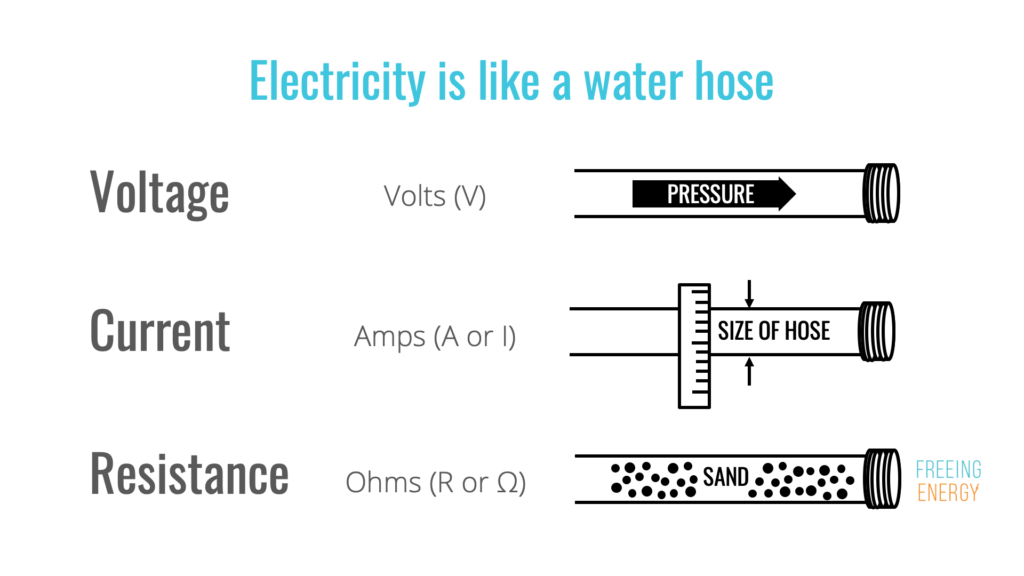
This takes us to the flow of electricity which determines the speed of charging. As the image above illustrates, a water hose is usually used to explain the flow of electricity.
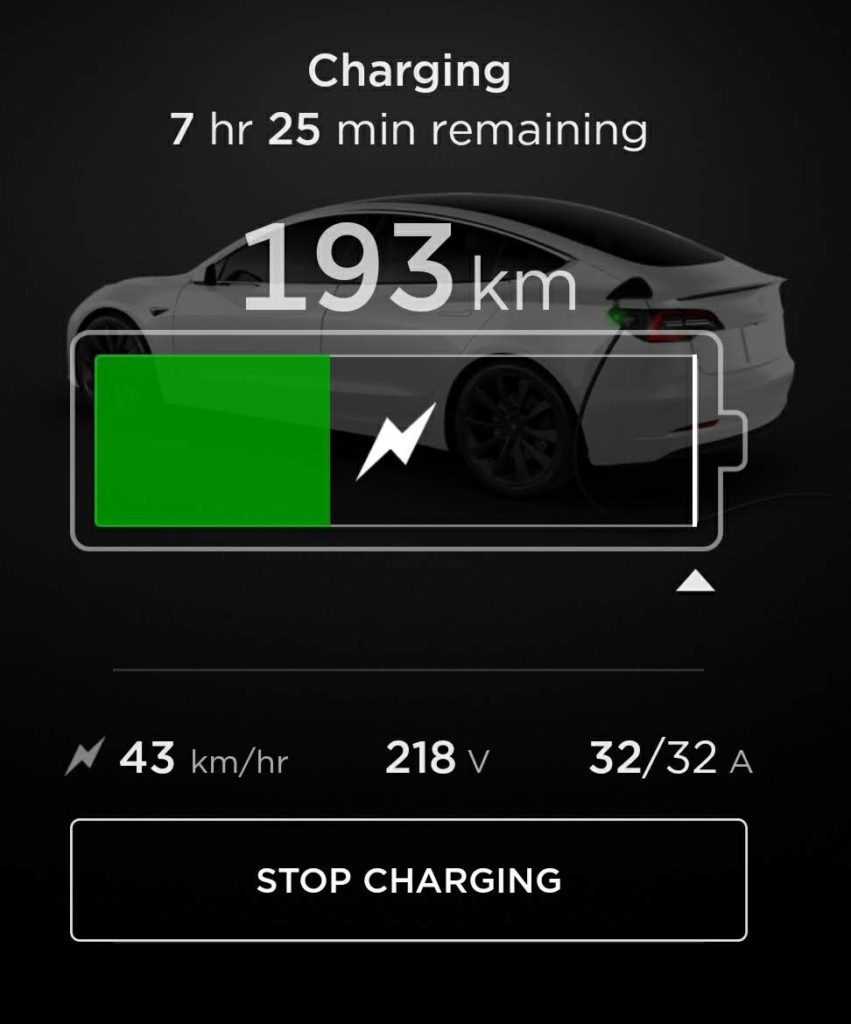
The image above shows the charging page on the Tesla App. I was connected to my Tesla Wall Connector at home. It shows me a number of information which includes V – Volts and A – Amps.
As the water hose image explains, the V is the “pressure” that is provided to me from my house power supply. In Hong Kong, the standard power supply provided is 220V.
The A is the size of the hose which is provided to me from my Tesla Wall Connector. The specification of my Tesla Wall Connector is Single Phase 40A with a maximum output of 32A.
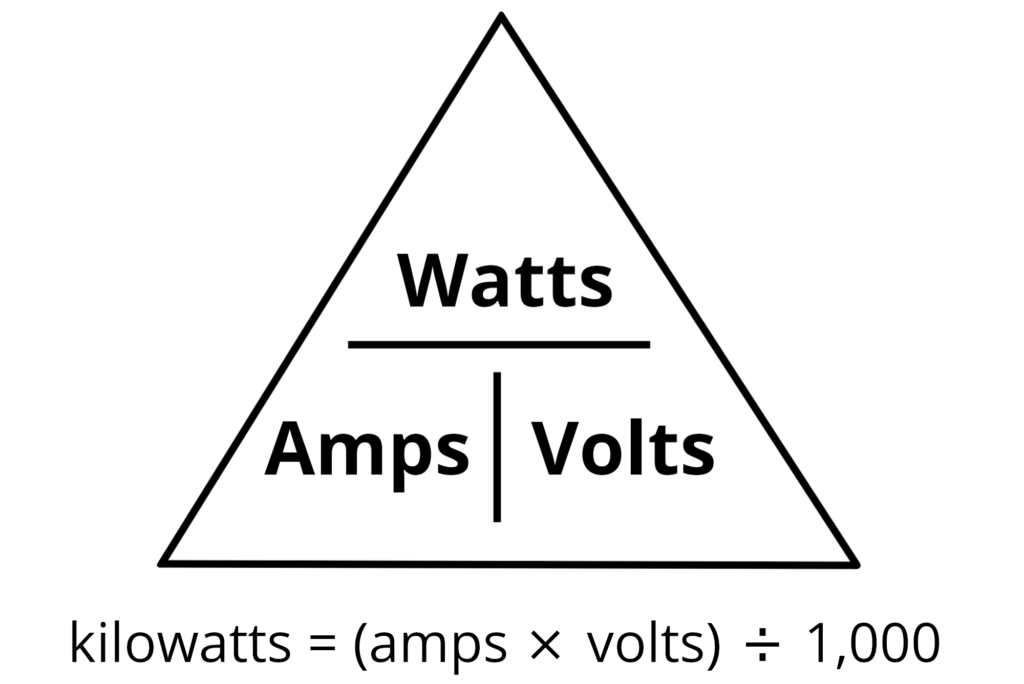
Looking at the formula above, we know that my Wall Charger at home is giving me (32A x 218V) / 1,000 = 7kW charging speed.

The question then is how long will it take to charge my car if the charging speed provided to me from this charger is 7kW?
Remember my Tesla Model 3 have a capacity of 75kWh. The formula for kWH of the stored energy in my car is kWh = kW (Power/Speed) provided from the charger x Hour (Time).
Therefore, 75kWh = 7kW x hr which equals to 10.7 hours.
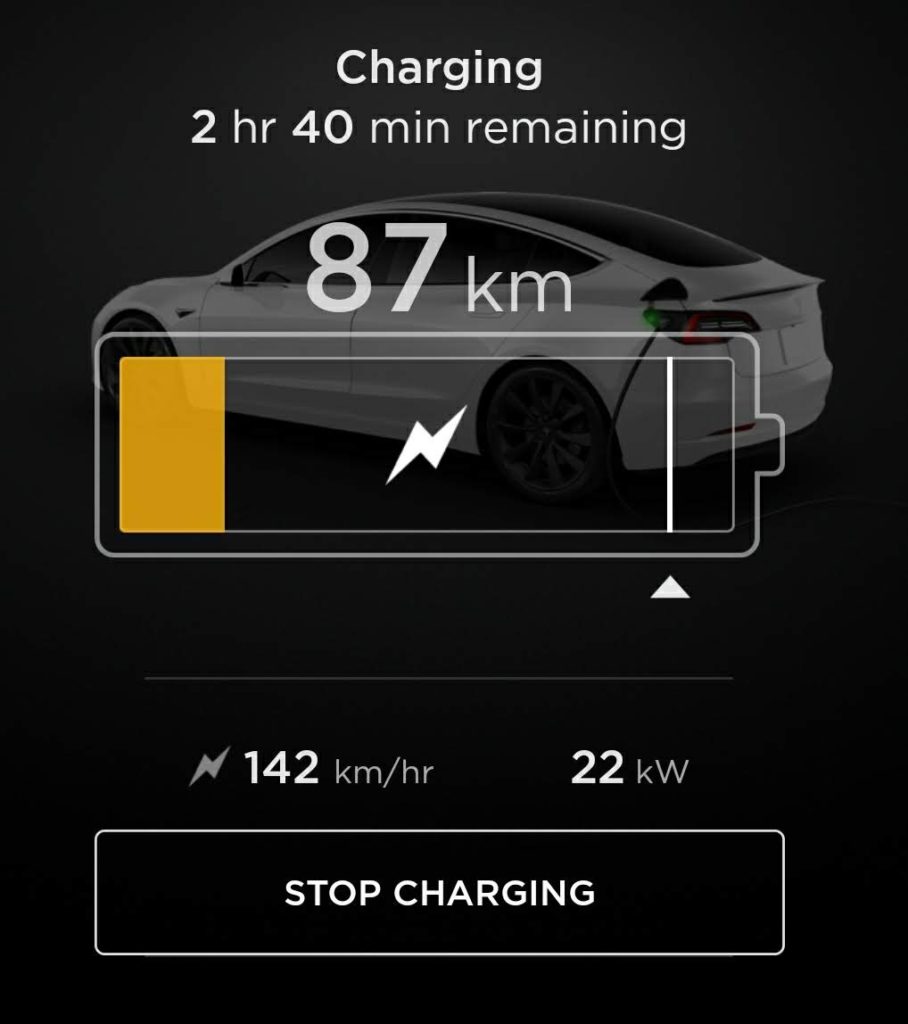
The above image is showing a the battery page of the Tesla App during a fast DC Charging. It is only showing the kW number as an average because the V and A during a DC charge is determined by the state of the battery if it is near full or near empty. Therefore, the app shows the average number of the kW charge going to the battery. This fluctuates especially during Supercharging as the battery will charge slower as it charges nearer to full.
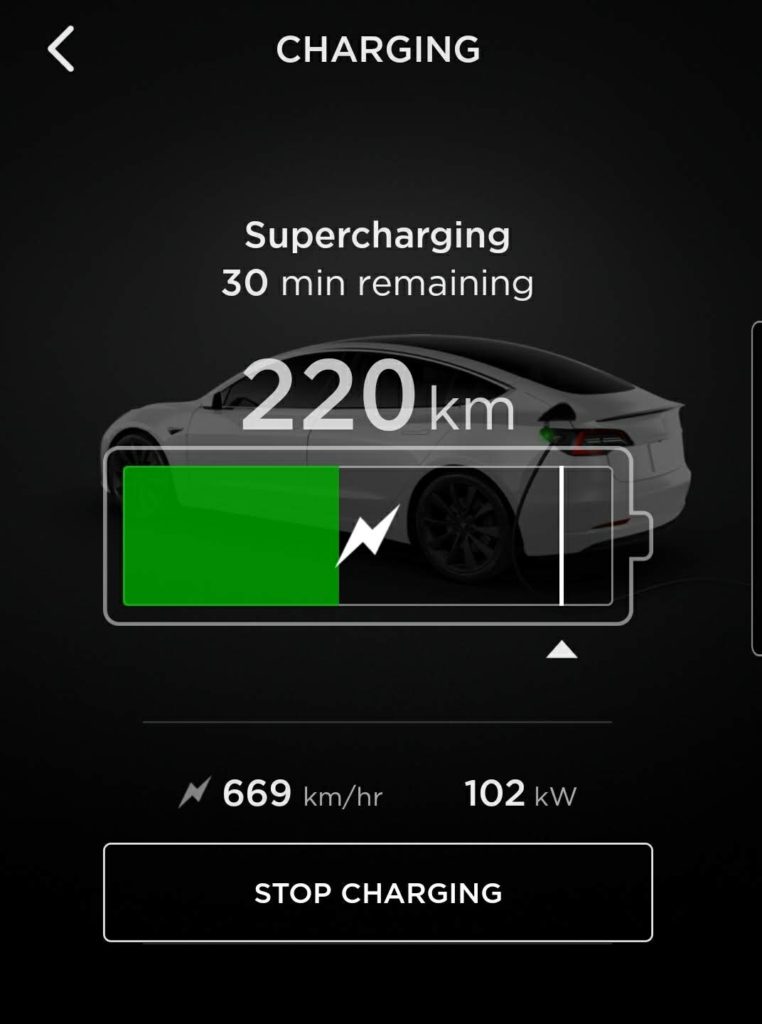
If you are interested in learning more in-depth about what affects the speed of charge, Teslapedia has a great article.


